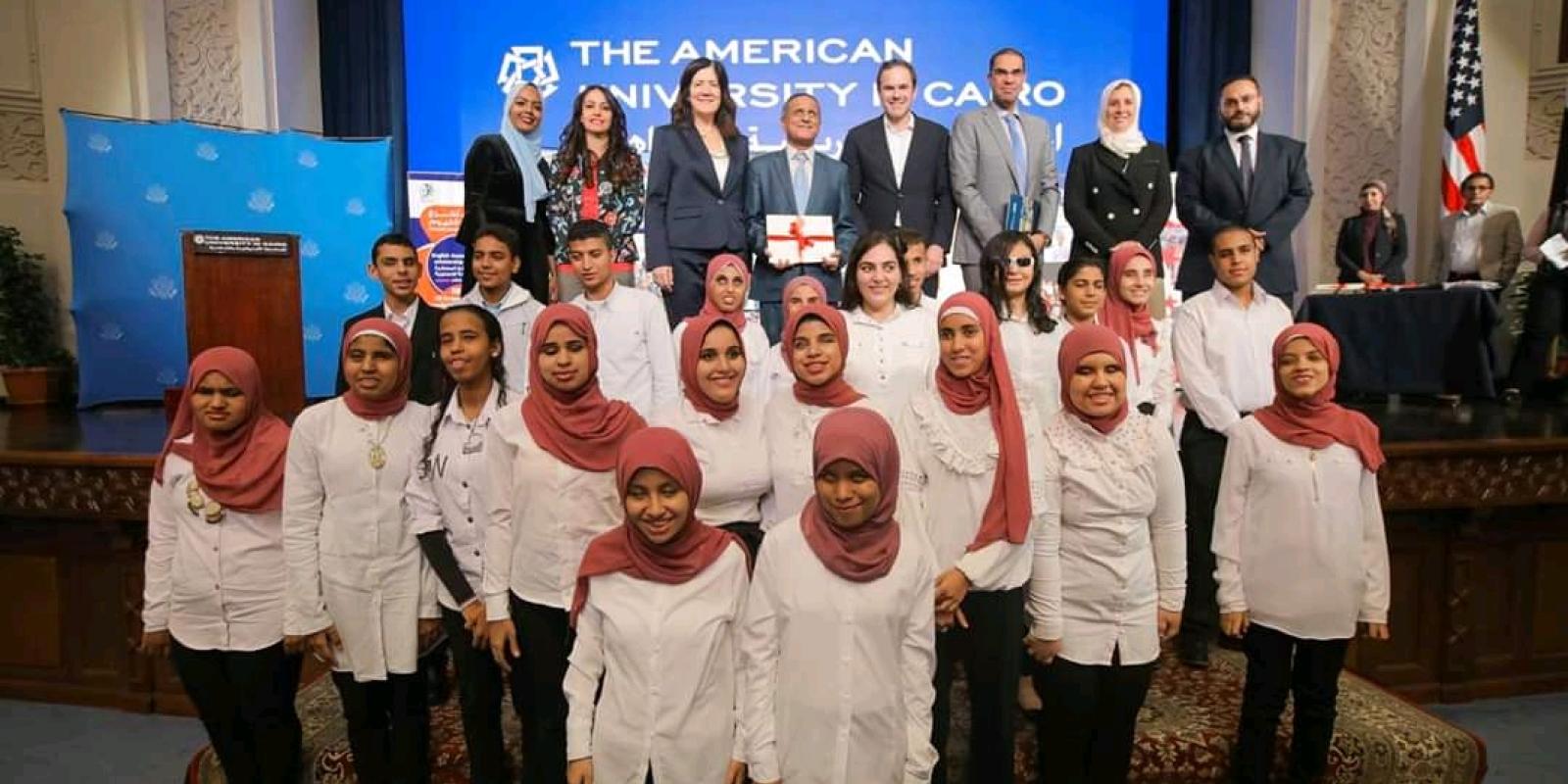
Access has a Whole New Meaning for Visually Impaired Students
“Super!” starts Maged Rushdy, “Our visually impaired students in the Access program have gone far beyond our expectations.”
In 2016, the global English Access micro scholarship program, or better known as Access, welcomed its first cohort of visually impaired students under the instruction of SCE. Supported by the U.S. Department of State and the U.S. Embassy’s Regional English Language Office (RELO), Access provides a foundation of English language skills to talented 13-18 year-olds from economically disadvantaged backgrounds across the country over the course of two years. Management of this program is shared with AMIDEAST, with both organizations working in close and collegial coordination.
The first on the global scale, the pilot class of twenty, witnessed an outstanding impact on the students’ academic and personal lives. One of the most dedicated students went on the score first in her class in the Egyptian high school exams (Thanwiya Amma) for the visually impaired national level. Others have pursued their undergraduate studies in the Faculty of Linguistics, better known as Alsun, at Ain Shams University, and another qualified for a scholarship at AUC. Overall, they all benefited from greater self-confidence, stronger critical thinking skills, and better opportunities to study or obtain jobs.
“They are active. They are not passive students. They are constantly interacting with their sighted classmates and the wider community. In my opinion, this is one of the greatest achievements we have done in Access,” Rushdy explains.
Access as a program is unique in integrating the English language and skills development across different disciplines for these ambitious youth. For example, students benefit from exposure to drama, environmental conservation, entrepreneurship, and many other areas to expose them to various areas to practice the language and talents.
Visually impaired himself, Rushdy is adamant, “We don’t say no to anything. Whatever their sighted classmates are doing, we will manage as well.”
He elaborates, “RELO was courageous enough to initiate the inclusion of visually impaired students in Access. And SCE had the willingness to take on this challenge. We were all enthusiastic, but this was unchartered territory for the program we were all eager to learn from. The second cohort benefited from these learnings, as well as with the added hurdles of COVID19.”
Given the program's scope targeting students from disadvantaged circumstances, the conversion to the online format was a considerable risk for this group. With a general lack of resources and technology literacy, Braille literacy transition to online learning was gradual. Starting in April 2020 with voice messages on Whatsapp as a tool available to those involved while the program management facilitated loan tablets and connectivity where needed. Eventually, the students developed their skills utilizing learning materials from a dedicated online learning platform. It should be noted that the majority were using touchscreens, which are considerably harder to navigate from the physical keyboard on a laptop. By June 2020, one of the students was recognized for his active participation and writing skills as an ‘Access Star,’ without his visual ability.
This triumph can sometimes be underestimated. Most started the course with the mindset that it would be standard exercise with limited impact outside the classroom. Rushdy explains, “Generally speaking, accomplishments for the visually impaired students are usually determined by individual determination or external support such as extraordinary parenting. The education system needs to be revolutionized to play an important role here as well. Access was that disruption for my students.”
And now, at the closing of this meaningful learning experience, they are more prepared to pursue the opportunities that come after they graduated on December 19, 2020.
As for his aspirations for the young talent he nurtured, he has rightfully set the bar high, “Let’s agree on something. Everyone has their own skills and personality. For example, it isn't easy to find an adjective to describe all the people in Cairo. The same applies to the visually impaired community. My life’s work as an instructor and college professor is to raise awareness and promote acceptance in society to see us everywhere.”